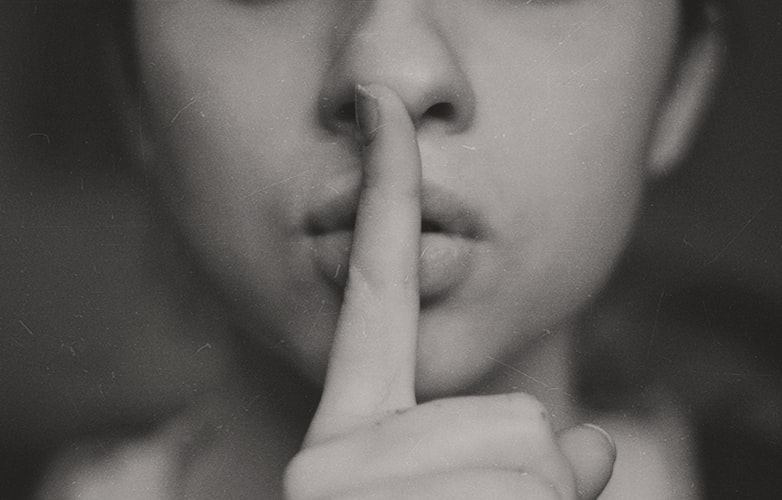This post originally published at Misfits Theology Club.
The recent shootings in Atlanta have galvanized a long-simmering conversation about racism against people of Asian descent in the US. Whether the shooter, in this incident, has any conscious racial bias is sort of irrelevant when you recognize the race-based correlation of Asian women and massage parlors in this country. If you attack a massage parlor, you are attacking Asian women, whether you intended that connection or not.
I don’t have any standing or perspective to talk at length about AAPI discrimination of the history of othering that continues pervasively in society – other than to apologize for my participation in its perpetuation. I also don’t want to distract or devalue the necessary conversations taking place around this issue, stemming from the Atlanta murders. I do, however, think there’s another issue that a specific subset of people, my people – evangelical Christians – need to address coming out of this tragedy.
Law enforcement is slow to label this a hate crime, specifically because there isn’t a ton of evidence this guy had any race-based animosity towards people of Asian descent. Obviously, racism doesn’t have to be intentional, as racism is measured by results, not motivation. What the police seem reluctant to say is that this crime likely did have an intentional, hate-filled motive, specifically against women.
Gender bias is an identifier by which a crime can be escalated to “hate crime” status under existing laws, but misogyny is rarely punished in this way – at least for straight, cis-gender women. I’m not an expert, but I’d imagine this is an ongoing legacy of patriarchy, at the very least. For people, like me, who grew up evangelical over the last 40 or so years, this story is an easy one to recognize.
We’ve got a 30-something man, by all accounts a committed member of his congregation, someone who grew up with a pastor father and likely in church multiple times a week. It seems he’s taken seriously the teachings of his faith about the dangers of sex, but found himself frequenting massage parlors that doubled as brothels or one kind or another. In a fit of shame, grief, remorse, and self-hatred, he attempted to eliminate what he perceived to be the source of his problem: the evil women who led him into sin.
That’s the evangelical story of the purity culture generation. Thankfully it hasn’t always ended in gun violence, but it certainly produced lots of abuse and mistreatment, ruined relationships and marriages, and made a lot of people really unhealthy when it comes to sex.
Pure by Linda Kay Klein is a great book that examines purity culture from both professional and female perspectives. I’m not sure I’ve read a book like this from a male perspective, but I assume they’re out there too.
The bottom line is: we spent several generations teaching evangelical kids to be afraid of sex, that it was some powerful boogeyman seeking to devour their lives. What we didn’t teach was how to understand our very real, human, and natural sexuality, and to make good, healthy choices that elevate the humanity of every involved.
This failure left a lot of us flailing in the wind, struggling to figure out a key element of life without any real help from our community. It’s a difficult topic that’s still almost taboo in many evangelical and conservative Christian circles.
The message, intentional or not (hopefully not, but I’m not always sure), is still largely that women, girls, bear the responsibility for sexual decisions. Males are hormone-driven, bestial monsters with an uncontrollable compulsion to copulate. They can only be tamed by clear-headed and disciplined females, who take responsibility for the sexual health of themselves and the males around them.
It sounds silly when you write it out like that, but I’m confident it will also look familiar to a lot of people who grew up like me. I’m not saying anyone in their early 20s is a bastion of healthy choices, but I’d bet you anything you’ll find far more sexual dysfunction on a Christian college campus than at your local State university.
When both boys and girls are taught the woman is at fault for any sexual choice either party later regrets, you add additional shame and guilt to a culture that already leans into misogyny. If serial murder doesn’t get us more formally addressing this problem, then surely the generations of abuse, self-hatred, suicide, and depression are going to continue.
There’s not an easy answer – if there were, the problem wouldn’t exist in the first place – but we can’t let a moment of national reckoning and attention like this go to waste. These internal evangelical conversations shouldn’t take away from the larger movement and conversation on Asian hate in the US, but we also can’t let that conversation provide excuse to ignore the one that exists right in front of us.
Photo by Kristina Flour on Unsplash

No comments:
Post a Comment